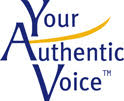 Feeling and exhibiting nervousness. Forgetting the words or having the wrong content. Lack of audience interaction.
Feeling and exhibiting nervousness. Forgetting the words or having the wrong content. Lack of audience interaction.
These are the three things most of the folks I coach dread whenever they contemplate speaking in front of a group, large or small. The thought of these three things happening can send fear coursing through the veins of even the most powerful CEO or community leader.
Here’s the thing: we often create the worst possible scenario in our heads before we even begin — I’ll drop my notes, my voice will shake, someone will make a critical comment I don’t know how to deal with. Aaaaahhhhh! These thoughts becomes more terrifying if the audience will contain people you want to impress.
What do you do?
First, realize your fear is coming from an idea, not reality. It’s coming from what you are telling yourself, not what is necessarily happening. Just knowing this can make the difference. I’m not saying you haven’t had a bad experience — maybe you have. And maybe that bad experience has become lodged in your brain in such a way it has created an involuntary reaction. Or, perhaps your fears are just the result of doing something for the first time — the fear of the unknown.
Whatever the case, I know you can change your experience because I’ve done it. What drove my fear was the thought I might fail. I was afraid the people in the audience would not respond, that I would hit a bad note or forget the words when I sang, or that I wouldn’t be taken seriously. Overall, I was afraid I wasn’t good enough, and that I had no right to be on the platform. You can imagine, it took some time to work through those issues, but when I did, the fear dropped and I became a much better speaker and performer.
So, what did I do, other than years of personal growth work?! Here are some ideas for you:
1. Realize you are the instrument for the delivery of this information. It’s not about you, it’s about your audience. It’s about what you can bring to them. When you put your focus on your audience, you can let go of your self-consciousness. I often pick a couple of “touchstones” in the audience I come back to again and again – a couple of smiling faces. I imagine I am giving to them something that will make a huge, positive difference in their lives, and that helps me stay focused.
2. Know that your audience, at least 99 percent of them, are there for you. They want you to succeed — they are on your side. You can be yourself. In fact, it is most important that you be yourself. People respond to genuineness. And if you make a mistake, or it doesn’t seem that your audience is with you, that’s okay. You cannot tell if your message is getting through by an audience’s response. There have been times I thought I’d “died,” only to find out later I received great evaluations!
3. Prepare well, rehearse well and have your notes available. Make sure you connect with the concerns of your audience beforehand so they know you “get them.” And if you do forget something, remember, no one else knows what you’re going to say.
4. Get there early and check out your environment. Make sure it is set up for your success. As the speaker, that is your job.
5. Be there to greet people as they come in the door. Smile, introduce yourself, shake hands, ask their names, share a kind word. Now you know them, and they know you. They are no longer strangers, they are friends. (This practice is so unexpected they are pleasantly surprised.)
6. Take some time before your speech to get yourself in a good mental and emotional space. Use NLP (neuro-linguistic programming) techniques that anchor relaxation and happiness with speaking.
7. Let go of the outcome. Part of mastery is recognizing that unexpected opportunities arise in the moment. Your training and preparation will help get you through. I always tell my clients, you are the one to deliver this information or you wouldn’t be there. If you encounter anything uncomfortable during your speech, take a deep breath and be open to whatever insights you receive. Recognize that while you have a lot of influence, you are not alone in this. The whole universe has conspired to get you there.
Remember, there is the speech you prepare, the speech you rehearse, and the speech you give. They will all be different, but the one you give will be exactly what is needed for your audience. Trust that the best result will come to pass. Be yourself. Have fun. When you have fun, you subconsciously give others permission to have fun. And really, that is a big part of what your audience wants. When you put your focus on your audience, you will be so engaged your concerns will drop away. Go forth, and as we say in the theater, break a leg!

Leave A Comment